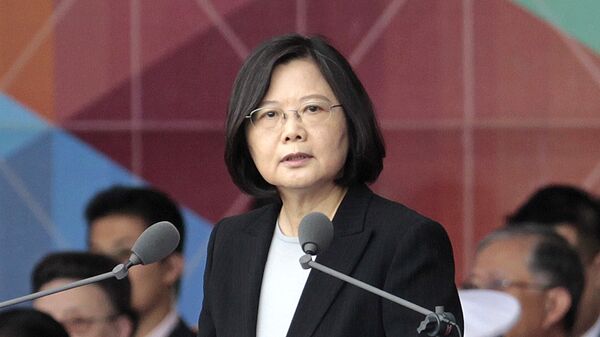Her statement, however, elicited a barrage of criticism from social media users both in Taiwan and in mainland China.
Andrei Karneev, deputy chief of the Institute of Asian and African Countries, told Sputnik that this reaction was the result of many netizens, including residents of mainland China, being concerned that Japan is trying to woo the Taiwanese government as part of an apparent effort to contain Beijing.
台湾のTPPへの参加に対して、日本の菅官房長官から前向きなご発言を頂き、誠に心強く感じています。また、日本のご支持を感謝致します。https://t.co/F3uFJTAmpO
— 蔡英文 Tsai Ing-wen (@iingwen) June 27, 2017
Meanwhile, Taiwanese people criticized their President’s statement, arguing that the government is doing little to improve the country’s economy while hoping that TTP membership is some kind of a magic pill that will help solve all of the island’s social and economic problems.
Those who seek better relations with mainland China also took a dim view of Tsai Ing-wen’s move, as they believe that Taiwan’s economy would be better off integrating into the vast Chinese market rather than taking a chance with the TPP, Karneev added.
Last but not least, a considerable number of Twitter users were outraged by the fact that Tsai Ing-wen wrote her post in Japanese – an act that was considered by many as unpatriotic and as a rejection of her Chinese identity.
However, a number of Twitter users did approve of the Taiwanese leader’s post, some of them arguing that her use of Japanese language was merely common courtesy.
The more 'patriotic-minded' users however refuted these claims and blasted Tsai Ing-wen for apparently attempting to emulate the ‘Twitter diplomacy’ of US President Donald Trump.
It should be noted that in her previous Twitter post, written in English, Taiwan’s President thanked several US senators for supporting the move to supply weapons to Taiwan – a sign that this social network is becoming an important political instrument to her.
According to Karneev, this somewhat mixed reaction to Tsai Ing-wen’s post relays the public attitude both in Taiwan and in mainland China and betrays the general uneasiness about the suspended political dialogue between the island and the mainland.



